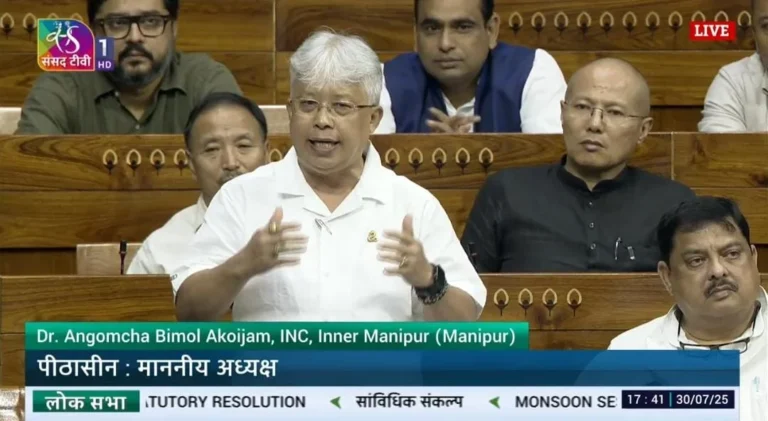All About India’s New Online Gaming Bill: What It Says, Why It’s Coming Now, And How It Will Change The Game
News Summary
India’s Union Cabinet has cleared the Online Gaming Bill, a national law designed to regulate online gaming and make betting via digital platforms a punishable offence. The government plans to introduce it in the Lok Sabha on August 20, 2025, aiming to address addiction risks, fraud, and the patchwork of state rules that confuse players and companies today. Reports also indicate the Bill covers real-money gaming and e-sports oversight, with stiffer penalties for illegal betting, while providing a unified framework for the fast-growing sector
What exactly is the Online Gaming Bill?
At its core, the Online Gaming Bill is India’s attempt to put clear national rules around a digital pastime that millions enjoy and thousands of startups build for. According to official briefings and media reports, the Bill would bring online gaming platforms under a legal framework, criminalize betting through digital apps, and give the government tools to curb addiction and fraud while ending inconsistencies in state-level rules. In short: one country, one playbook.
If you’ve ever wondered why one app lets you play cash contests in a state but blocks you in another, or why ads for “free spins” appear one day and vanish the next, that confusion comes from a regulatory patchwork. The Bill aims to lay down uniform basics so companies and consumers know where the lines are—and what happens if they’re crossed.
Why is this happening now?
India’s gaming market has exploded. Real-money games, casual titles, and e-sports tournaments have gone from side hustle to mainstream entertainment. Along the way, three fault lines emerged:
- Betting & harm risk: Cases of addiction, debt, and fraud made headlines and moved regulators to act. The government has signaled that betting on digital platforms must be punishable, putting public health and consumer protection first
- Patchy state rules: Several states experimented with bans or bespoke regimes; others tried “skill vs chance” distinctions with varied interpretations. That created a maze for both players and platforms. The centre now wants a cohesive national baseline.
- Legacy measures weren’t enough: In 2023, the IT Ministry notified rules requiring self-regulatory bodies (SRBs) to vet games and set standards, a co-regulation approach. Helpful, yes—but not a full law from Parliament. The new Bill aims to convert this policy direction into statute with enforcement teeth
Add to that the 28% GST decision on online gaming (passed in 2023 for certain categories), which pushed companies to formalize operations and pricing. Taken together, taxation plus a national law suggests a mature, supervised market is the endgame.
The headline promise: regulation for gaming, punishment for betting
The government’s messaging is crisp: regulate online gaming; punish online betting. Reports indicate the Bill provides oversight for e-sports and real-money gaming—think licensing/registration, compliance and standards—while drawing a hard red line across betting and gambling activities on apps and websites. The aim is to protect consumers without smothering innovation.
If you’re a player: legal, compliant games should be easier to recognize. If you’re a startup: there will be clearer do-and-don’t lists. If you run betting operations masked as games: the Bill intends to make that explicitly punishable nationwide.
“Tabled tomorrow” isn’t a vibe—it’s a date
The Cabinet cleared the Bill on August 19, 2025, and it’s expected to be introduced in the Lok Sabha on August 20, 2025. That’s a tight, deliberate timeline—signal to market and stakeholders that this isn’t just talk. After introduction, it could be debated, amended, passed, or referred to a committee—that part depends on parliamentary process. For now, the message is: regulatory clarity is coming.
What might the Bill actually do? (Plain-English breakdown)
While the full text will settle the details, reportage from multiple outlets points to the following key themes:
- Unified legal framework: Bring online gaming platforms (especially real-money ones) under central oversight to end the current patchwork.
- Criminalize online betting: Make betting via digital platforms punishable nationwide, with penalties for violators.
- E-sports & money-gaming oversight: Establish standards for platforms hosting paid contests and e-sports events so organizers and teams know the rules.
- Consumer safeguards: Focus on addiction risks, fraud, and age-related harms—the policy intent that underpins the Bill. Expect KYC, grievance redressal, and audit trails to be non-negotiable.
- Advertising & endorsements (reported): Tighter control over how betting/gaming apps present themselves, including endorsements, with penalties for violations. This aligns with a broader shift by platforms like Meta that already tightened ad rules for real-money gaming in India.
And yes, industry noticed. Publicly listed gaming-adjacent stocks rallied after the Cabinet nod—investors typically like clear, predictable rules.
How will this interact with state laws?
Here’s the knot: “betting and gambling” traditionally sit with states, but online intermediaries and digital platforms fall under central tech regulation. The centre has previously told Parliament that states can frame laws on online gaming and betting for their jurisdictions. In practice, the new Bill is expected to set national minimums (especially for illegal betting and consumer safety), while states may continue to regulate permitted games and local enforcement. Translation: the centre builds the main road; states paint the lanes.
If you work in compliance, prepare for dual navigation: meet central standards and respect state-specific conditions where applicable.
FAQs
Q1. What’s the single biggest change this Bill brings?
A. A national legal framework for online gaming—pairing consumer protection with criminal penalties for betting on digital platforms. That ends today’s confusing state-by-state patchwork for many aspects of the ecosystem.
Q2. Does it ban all real-money games?
A. No. The government’s stance distinguishes between regulating online gaming/e-sports and punishing betting. Compliant real-money gaming platforms are expected to operate under strict standards, while betting remains a punishable offence.
Q3. I run a gaming startup—what should I do right now?
A. Start a compliance sprint: map features against betting risks, tighten KYC/AML, plan for registration/certification (building on SRB-style vetting), audit ads and endorsements, and stand up a grievance process. This groundwork will make formal approvals faster.
Q4. Will ads for betting/gaming apps change?
A. Likely yes. Reports suggest tighter rules for endorsements and promotions under the new regime. Big platforms already enforce age limits and pre-approvals for real-money gaming ads in India, so expect stricter norms industry-wide.
Q5. When will I actually feel the difference as a player?
A. The Bill is set to be introduced on August 20, 2025. After Parliament passes it and the government notifies detailed rules, you’ll see changes cascade across app stores, ads, payments, and customer support—from cleaner storefronts to more robust grievance redressal.





